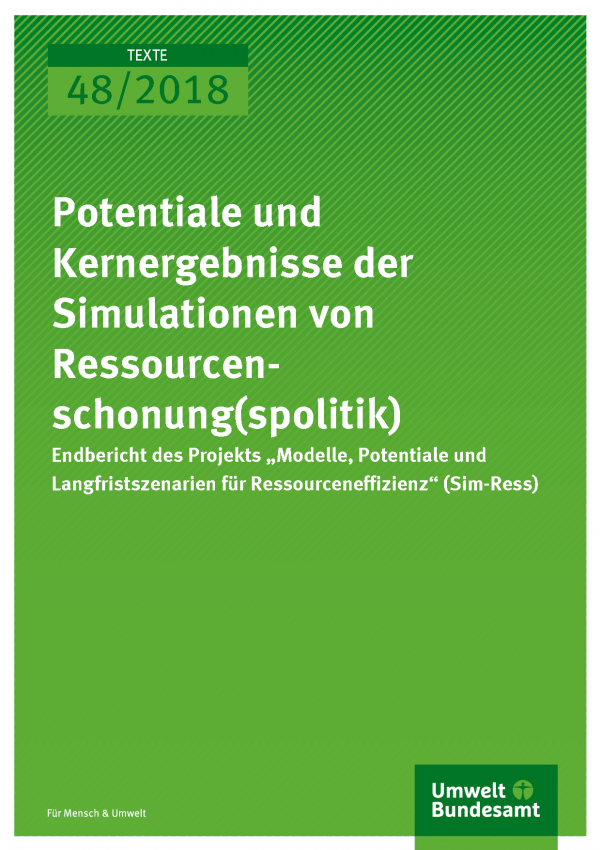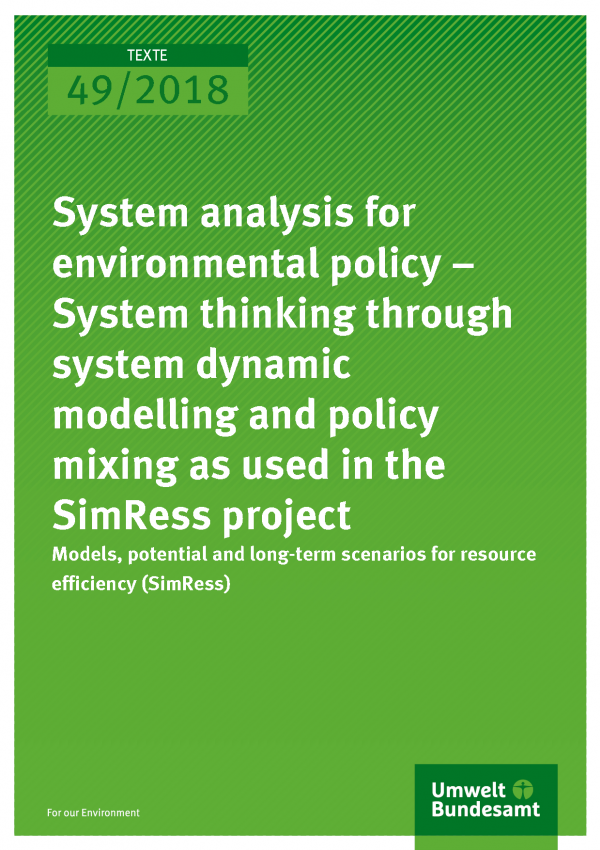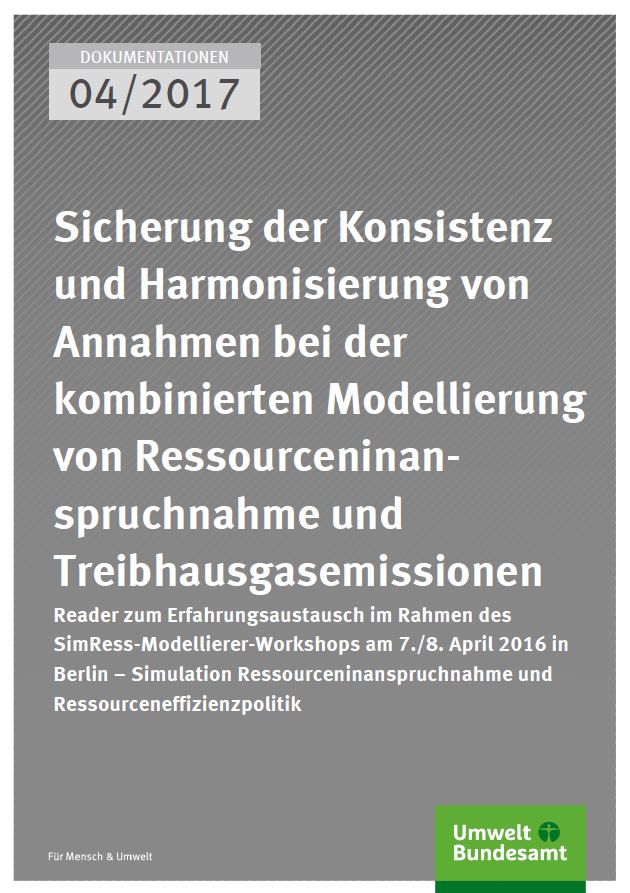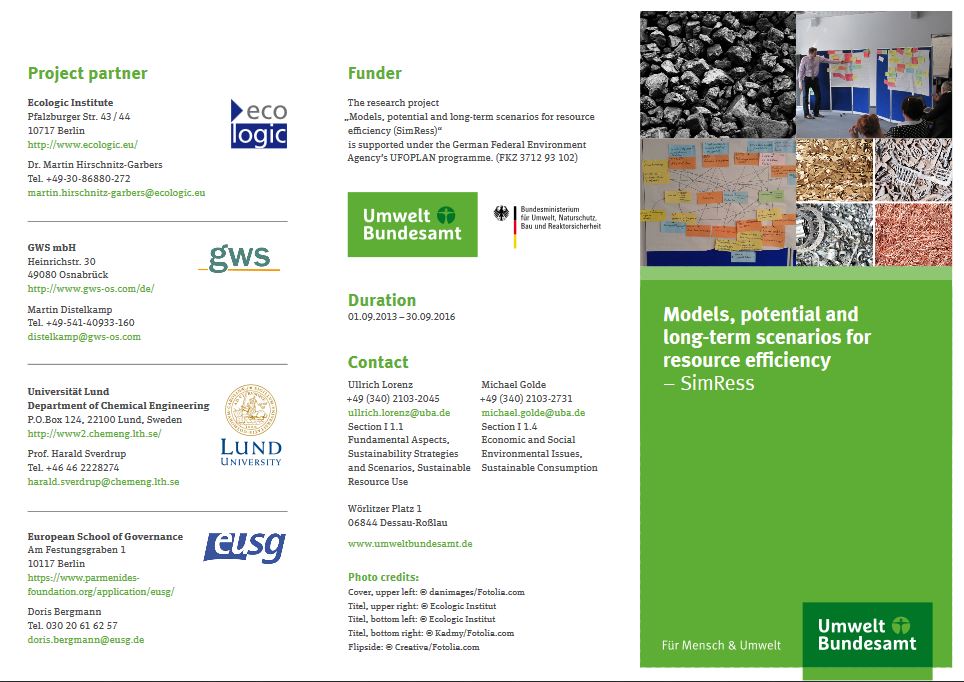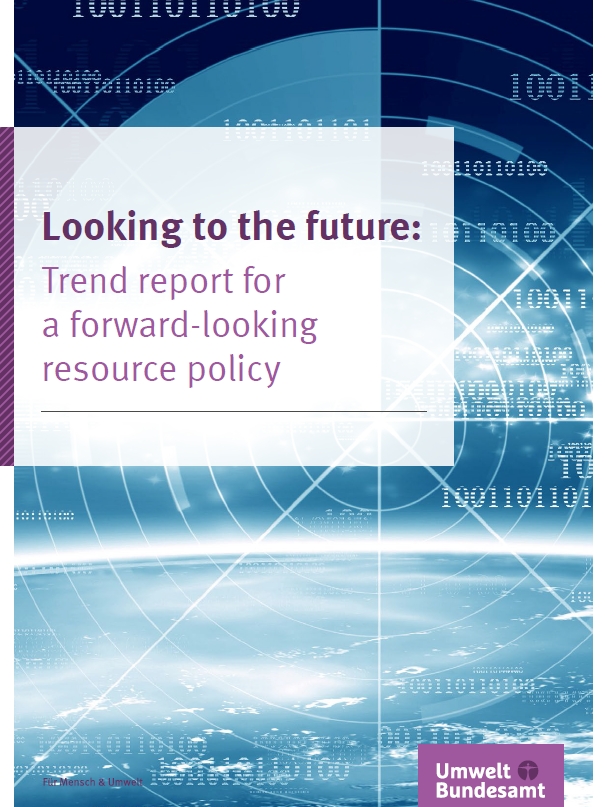Ressourcenschonung als Zukunftsaufgabe
Ansatzpunkte für eine systemische Ressourcenpolitik
- Publication
- Citation
Hirschnitz-Garbers, Martin, Susanne Langsdorf, Ullrich Lorenz 2018: Ressourcenschonung als Zukunftsaufgabe – Ansatzpunkte für eine systemische Ressourcenpolitik. Umweltbundesamt: Dessau-Roßlau.
The national and international political agenda shows that resource conservation is a central task for environmental policy: In Germany, Europe and globally, there are political programmes and strategies aimed at fostering sustainable resource use. In five theses, this brochure from the SimRess project shows that an integrative and systemically designed resource policy contributes to achieving the goals of resource protection and climate protection. The study was carried out by Ecologic Institute with Martin Hirschnitz-Garbers and Susanne Langsdorf as co-authors. The brochure is available for download.
By using natural resources, people intervene substantially in social-ecological systems. In particular, the extraction and use of raw materials has reached an order of magnitude that causes drastic damage to nature and also harms people, e.g. through environmental pollution or mining methods. Despite political progress, since the beginning of industrialisation the amount of raw materials we use for a variety of purposes has risen dramatically: Between 1970 and 2015, the global annual extraction of non-metallic minerals, metal ores, fossil fuels and biomass almost quadrupled to more than 80 billion tonnes. Although it cannot be assumed that there will be any kind of collapse, the massive extraction of raw materials will nevertheless lead to considerable environmental pollution and hold the potential for social and political conflict.
For the further development of national and international resource policy, the focus will continue to be on how resource conservation can be achieved more effectively and sustainable in the future, and to identify the factors that are delaying progress towards sustainability and how these can be countered. This brochure presents some suggestions for the necessary debate in the form of theses.





